
The Mini Chronicles
I have had a hell of a week. I packed up our belongings while throwing half of them away, loaded the other half in a POD, put 6 months of essentials in a rental SUV (quite a big one), and drove 12 hours to a furnished house I had never seen before (other than the video). It was a bold move. But I’m not going to say it was my boldest. My childhood trauma would have created ample opportunities for much more courageous actions. But it is still quite a big deal in the scheme of things. I had convinced myself that I would get to “the other side” and life would be calmer. I do this often. There is always something on the other side that will be better. My controller does this in an ungrounded way to keep driving me forward when I really need to slow down and rest.
But in this case, it was realistic. The hard part of this “project” was front-loaded. That’s for sure. There was some relief expected on the other side. That was a reasonable expectation. But today, I sat down in my Mini Countryman to take it for a drive. It was the first drive since it came off the auto transport truck and into my driveway. As I sat in the driver’s seat, I said, “Let’s go for a ride together, baby car.” Yes. I call it “baby car”. I love my little car. But as I pressed start, the color ran out of my face. Nothing happened. And the inner war began.
Of course, my controller took immediate action (as they do). I emailed the auto transport company about a claim. I called CarMax and was surprised to learn that my new car is still covered by the 90-day warranty … by two days. They will fix it for free. In the meantime, my system is still at war. Every feeling this move has provoked from my unconscious can be tied to this one press of a button. What are my inner parts saying? Here’s a synopsis:
“I should have kept my mouth shut about how much I loved my Mini. I am not allowed to have nice things.” I learned as a child that it was a bad idea to express my affinity and happiness for anything. I have broken those rules with my little Mini. I have nicknamed it. I have told people how much I love it. I even told the auto transport people how special it was to me so they would treat it well. I asked for trouble and I got it. Now I was being punished for being happy with something. Now I would forever be without what I love because I had to advertise it.
“My mother is making this happen because she will always destroy me no matter how far away I am.” I know this sounds crazy but I have inner parts who believe my mother is actually magical. And those parts believe she is really going to get me for having the gall to make a decision for myself. They are waiting for her punishment and to them, this is it. If she doesn’t do the punishing, someone else will do it. The universe will do it. She is all powerful and can truly make anything happen. Everything is aligned with her wishes. Of course, my adult self knows this is not true, but those inner parts and their fear can be very strong.
“I am trapped now. I cannot escape.” I have just moved to an unfamiliar town in a new state where I know nobody and my car won’t start. This is the epitome of “trapped”. I can’t go anywhere. I don’t really know where to go anyway. This is a time that requires exploration with my own vehicle. It is time to get out and learn about this new place. And now I cannot. I got here and now I have to stay here with no escape. It feels ominous to have no car when living in a place with no real public transportation. Honestly, my inner parts would have probably felt fine to stay at home until there was a situation where I had no choice. That changes everything.
When something like this happens, there is no interest in taking in contradictory information. The facts don’t really matter. There is no consideration for my luck in being under the 90-day warranty. There is no allowance for the possibility that this is a benign occurrence with no malicious intent. There is no ability to take in how incredibly kind all the service agents were on the phone. The idea that I was supported in every way is completely rejected as a plausible perspective. There is no way my inner parts are going to consider that this is anything other than a punishment.
So after a night’s sleep and a very embarrassing call with the incredibly nice people at CarMax support, the answer has been revealed. My inner saboteurs have struck and I am sure it won’t be the last time. There is nothing wrong with my Mini. There never was. My own parts sabotaged me and made me forget how to start it. I had driven an automatic for a week and completely blanked on what my left foot was supposed to do to start my manual car. I literally did this entire thing to myself. Am I embarrassed? Yes. But my self-sabotage presented me with an opportunity to see exactly what was happening in my system. It was a window to my trauma and that is priceless. Who needs enemies when we have self? Or maybe it was the enemies that created this self. Either way, my baby car is fine and nobody is punishing me but me.

Where Is the Help?
I grew up in a world where help came in two forms. It was non-existent. Or it was a betrayal disguised as help. My abusers made it clear that I was not going to find help. Each time I tried to find help, it was thwarted. Each time I had optimism, that optimism turned to disappointment as another opportunity to be helped faded into oblivion. My abusers were creative too. They would threaten others. They would brainwash me to sabotage relationships. They would damage my credibility with others. They would even employ other people to mess with me or anyone who wanted to help me. They were thorough. And because I was a child, I had no chance against their efforts.
I came out of my traumatic childhood believing that help would not be available to me. And that applied to almost everything. If I needed to call a customer service organization, I knew I would never get what I needed. If I needed help with managing my life, I was sure nobody would be available to help me. Even when I paid for help, I knew it would not be what I needed. I knew not to trust any offers for help. It didn’t matter if they were genuine. And if help did show up, I was quick to discount it as a fluke. Not surprisingly, this belief system left me isolated and exhausted. I was convinced I had to do it all. And most of the people I brought into my adult life confirmed it was true. Maybe I trained them to be useless with my over-the-top productivity. Maybe they were looking for someone who would do it all. I don’t know. But I know I always managed to find proof that help was never coming.
Now I am in the middle of a substantial home move. It is a scary time for those parts of me who believe that I will not receive help. The cold hard truth is that I cannot manage this move without help. I cannot move my furniture between houses all by myself. There are limits on my abilities and that is terrifying to my parts who believe they cannot get help. A move is a lesson in letting go of the things I cannot control. And honestly, that feels like a bad idea to my inner parts who have tons of proof that things won’t go my way. Logic says it will go the way it has always gone. But there is another way of looking at this. If I have eliminated the influences who made it all go wrong in childhood, couldn’t things go differently now? To get there, I have to express from the old beliefs and this is what they sound like.
If someone offers help, they will always want something in return. Growing up in my family, I was constantly forced to make deals with sexual abusers. The past few days, I have been helping my daughter with algebra. It isn’t easy and math anxiety does not help. And I have remembered my stepfather’s “tutoring” in algebra and the price I paid for it. It was a steep price. I’m glad I know it today, but I would never say it was worth it. Nothing is worth that. So now, my inner parts are a bit wary when someone offers to carry some furniture down my stairs or drive me to my rental car. It might save me some money, but I can hear my parts asking, “Is it worth it?”
If someone offers help, they will turn on me later. As I mentioned above, help was never free in my childhood. When people offered to help me, I am sure I would latch on for dear life. I thought there was finally someone who cared and could help get me out of my horrible life. But that would cause two problems. First, it would draw attention from my family. And they would inevitably target this person to turn them over to their side or to push them away. Second, that person would get a bit sick of my constant attention on them as I attempted to get real help. So now, my inner parts are expecting them to get resentful if I ask for too much. And “too much” is quite an undefinable term. Asking for nothing becomes the safest way to avoid problems.
If I need to rely on anyone else, it will be disastrous. When I was growing up, I experienced manipulation and gaslighting at epic levels. There were promises made with no intention of EVER upholding them. If those promises were upheld, it was never for long. Every activity where I needed a ride was in jeopardy. Everything which relied upon another human’s help was likely to become too inconvenient for them. The help they were supposed to give me was never the priority. I was labeled as the burden. I learned that if something was going to get done, I had to do it. As a child, that was impossible. I could not do everything I needed to do. But in adulthood, it is potentially achievable. At least that’s how my controller sees it. If I plan, strategize, lose sleep and work myself to the bone, I might be able to pull it off. The exhaustion is inevitable.
So I have to consider how these beliefs are no longer serving me. I have to express from the parts who see help as an impossibility. I need to question my initial belief that others aren’t going to help me (even when they have offered). I need to allow myself to ask for help even when I have inner parts screaming about the dangers of asking. This is how I can build a better network and live a life that is not defined by independence at all costs. Maybe someday, I will be able to accept help without guilt or suspicion. And I can allow the world to be a slightly more benevolent place to live. Maybe I could even take a breath every once in a while. We will see.
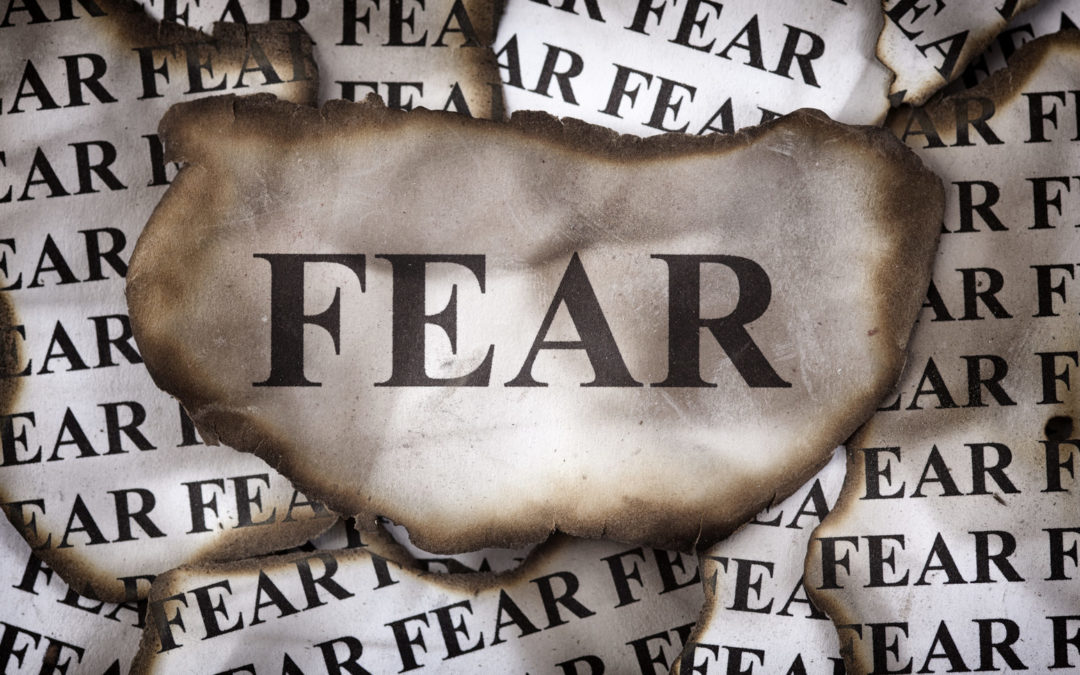
6 Signs We Are Living From Fear
We live in a world filled with fear. And right now, it might seem like it is worse than it has ever been. Fear is everywhere. There is fear of disease, fear of financial destitution and fear of oppression and attacks on our human rights. They are widespread right now and they are feeding our existing fears coming from earlier traumas. These days, the fear can seem like it is growing exponentially. It can feel like there is no way out of it. We are literally afraid of our fear. Needless to say, it can feel like an uphill battle to live without fear with everything fueling its existence. One of the most important steps to stop living from fear is to understand the ways we are. Our fears don’t always show up the way we think. Let’s look at six signs we are making decisions from our fear.
We are highly logical. When we live life with many black and white rules, there tends to be fear driving those rules. Logical rules can seem highly unemotional. They seem to be driven by thoughts only, at least on the surface. But when we dive below our thoughts, we can find the fears that create them. This is why it can be so difficult to change these rules. The fears driving them must be addressed first. And it is true that the more extreme our rules, the more fear is involved. What do I mean by “rules”? Here are some examples:
There is only one correct way to do something.
The steps in life can only go in this order.
Taking risks will always fail.
We mitigate the unknown. When we are driven by fear, the unknown can feel terrifying. Any gap in certainty is never a potential opportunity for good things. It is only a disaster waiting to happen. When we have something unknown in our lives, our fear will tell us we must resolve it as fast as possible. We must force it to certainty. It is this force that can create the most problems. Often, the best result happens when we pause. But too much fear won’t allow for that.
We are anxious. This one might appear obvious at first. If we are fearful, we are likely to experience anxiety. But the anxiety is rarely coming from our original traumatic fear. The anxiety is our fear of the fear (or fear of any emotion). Anxiety tells us not to feel the fear from childhood. Instead, anxiety tells us to project that fear on to what is happening right now. Anxiety makes our flashback fear about now. And that means we make decisions from our past fear today. Not surprisingly, this is not going to lead to new and better results.
We get depressed. Depression might not appear to be fear-driven, but it is. Have you ever noticed how it comes up at the moments you are about to do something new and exciting, something that will take you out of the norm? Depression is a defense that is meant to keep you safe by keeping you small. It is meant to stop you in your tracks so you don’t make an unsafe decision which could lead to something disastrous. But in the end, depression becomes the way we punish ourselves in anticipation of being punished by others. And that’s no way to live.
We feel paralyzed. We can’t seem to get anything started or finished. This is especially true if these things are new things, exciting things, visible things or successful things. The fears will drive our ability to complete new tasks because we are afraid of the results. Maybe we are afraid we will fail. Maybe we are afraid we will succeed in a big way and become a target. But living small can feel safer when fear is driving our decisions.
We overcommit. We have a tendency to commit to things that were never meant to be permanent. Maybe it was meant to be transitional. Maybe it was meant to take us from point A to point B. But instead, we have committed to it for life. It could be a relationship, a place to live or a job. And we can’t see a way out. We overcommit to give ourselves that feeling of stability. It helps quell our fears. But we get trapped in places we were never meant to stay.
It is important to keep an eye on our fears and how they might be driving our life choices. It is easy to believe that the fear is the truth. But it’s not the truth. Our lives were meant to be driven by much more than the fear of living. We need to take a step back from all those fear-based influences and question what we thought we knew. We won’t change things fast, but with small steps and awareness, we can start to live life without the intense fear that has plagued us since childhood. Let’s make changes together. Come join us in Survivor’s Guide for Life this October as we discuss how to emerge from fear-based living.
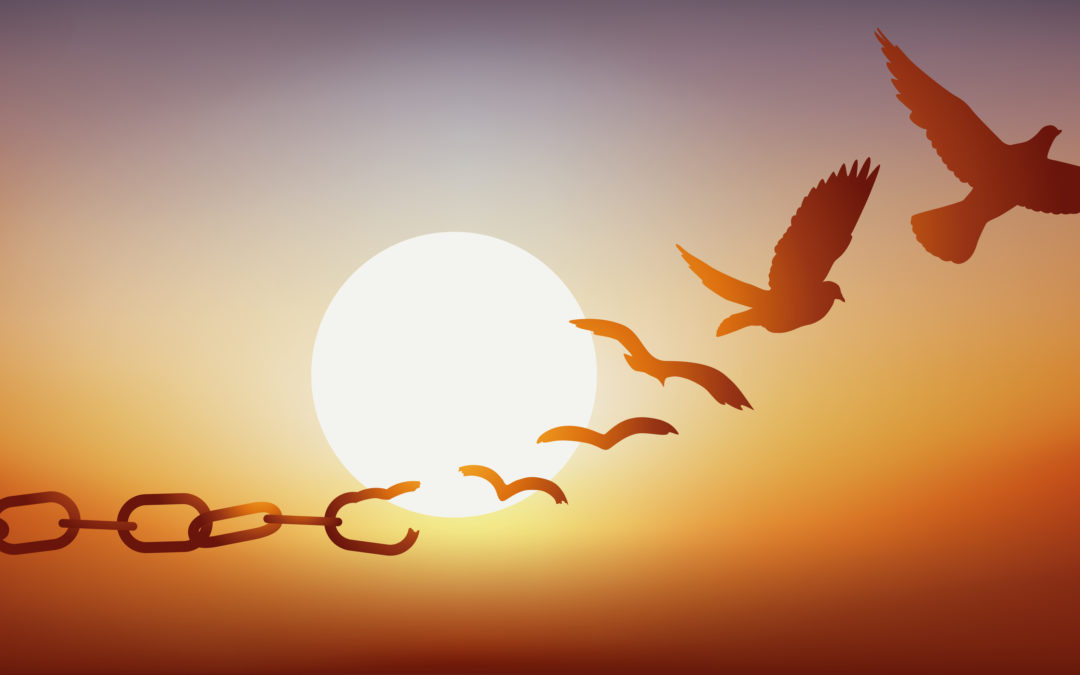
6 Ways Others Hold Us Back
We are living in a scary time. It is hard for everyone. But after childhood trauma, it can paralyze us. We already have inner parts who are programmed to find the fear in everything. We learned this survival skill at a very young age. Now that the world around us has escalated in so many ways, those parts are on overdrive. You may have noticed that it felt better for a while. The controller steps in and numbs us because the triggers are just too much for. But that can’t last forever. The fear eventually finds its way through the dissociative fugue. That’s when our defenders go into overdrive with fear-based scenarios of all kinds.
But we didn’t start this way. We were born free. We came out of the womb ready to live an adventurous and authentic life, never compromising on who we were meant to be. So what happened? We met a whole bunch of people with a whole lot of fear. And it didn’t take long to rub off on us. In some ways, we were purposefully thwarted in our attempts to live free. Physically and sexually abusive people instilled a daily fear of attack. Mentally and emotionally abusive people made sure we knew there was no hope for our plans. And unconscious “well-meaning” people made sure we knew that striving in this world doesn’t get us very far. Why did they do it? They did it because they didn’t know anything different. They were repeating generational patterns and they had no idea there was another way to live. They were too inundated with fear to look for other ways to live. But you don’t have to drink their poison. Awareness of their strategies can change everything and break cycles. Let’s talk about them.
Purposeful Strategies by Abusive People
They Set Up Contracts with Us. You might be wondering what I mean by contracts. It sounds a bit extreme to make a child sign a contract. In reality, they are almost never signed (although they can be). They are verbal agreements or deals. And our inner parts take them very seriously. They are created by adults who are jealous of our early love of life. They are jealous of who we might become. They were squelched and they have to find a way to squelch us too. So they set up deals with us about how we are allowed to live life. And there are repercussions if we don’t. These contracts make any authentic choice subject to punishment.
They Attack our Self Worth. Many abusers will see our low self-worth as an insurance policy for the contracts. Even if we get the idea that we want to break a contract, we will often drop the idea when we “realize” we aren’t good enough. Abusers will tell us repeatedly that we lack the ability, the skills, the intelligence to do and be what we want. But they will take it further. They will blame us for problems we didn’t cause. They will let us know we are inherently bad. So we learn we are not good enough. But we also learn we are truly bad. We learn that attempting to move out of our contracts will fail because of who we are.
They Shut Down our Inner Guidance System. When external people come at us with contracts and attacks on our self-worth, we don’t have to believe them. So why do we? They also teach us not to trust ourselves. They shut down our own inner wisdom which knows our way forward. If we cannot hear or trust ourselves, we will have no choice but to listen to them about who we are and what we are supposed to do. We lose our connection to anything that says otherwise. And we cannot get that back until we start to reconnect with self.
Unconscious Strategies by “Well-Meaning” People
They Pass on Their Rules. People who live in fear also live by rules. These rules were passed to them by other fearful people and society. They may have learned helplessness from trying and failing. They may have learned helplessness from abuse or their own contracts. But in the end, they aren’t really sure life has that much to offer. If they met you as a child when you still had some hope, they might have given you some advice. Maybe they thought it was good advice. But it can further solidify the abusive practices of those who wanted to hold us back in our lives.
They Might be Jealous. If you meet people along the path of life and you are having some success (or just planning for it), people might tell you to give up or aim lower. They might think they are “knocking some sense into you”. They might think they are being wise. But deep down, they might have a bit of jealousy driving their advice. They might have some inner parts who want to aim higher, but their own fear is holding them back. And on an unconscious level, they might believe something will be proven to be wrong with them if you succeed. If you can have it and they can’t, they would have to face what they are doing wrong.
They Might be Projecting. Others have often faced abuse and contracts with their own family. If so, they might be in survival mode. They are avoiding horrible things. They are living in fear. They are walking the line to keep all their fears in check. If they see you “getting out of line”, they might come swooping in to save you. They want to keep you safe, and deep in their unconscious, they think they have the key to do it. They project their own self-saving strategies onto you. They meet your needs in the way they meet their own. You are their mirror and you are making them feel unsafe. So they are here to fix you and save you from the repercussions of your actions.
All these strategies can lead to problems with embracing an authentic life. There are too many influences coming from too many directions. But there is a way out of the fear. We can bring our awareness to these influences. We can write from the beliefs coming from interactions in our childhood. And we can allow ourselves to feel the fear of breaking through to our authentic life. We can rise above these strategies and find our real path. We can remove the chains dragging us down. We can leave this fear behind.

Finding the Rebellious Side
I grew up in an environment with one very clear message: who I am and what I believe does not matter. My opinions and emotions about my experiences were not welcome. My desires and plans in the world were unacceptable. I was trained from an early age to be invisible. I was taught to be nonexistent. My inner defenders grew in strength every day. I developed some survival strategies that were not healthy. And those survival strategies made it impossible to have healthy relationships in my adult life. What did they look like?
I had no idea what I wanted. I lost track of my own internal communication. I could only operate from the external guidance I received. In every relationship, I would take on the hobbies and interests and life aspirations of others.
I had absolutely no boundaries. To be fair, I didn’t know what a boundary was. I didn’t know there was supposed to be defined space between two people. I certainly never knew I was allowed to say “no” for any reason to anyone.
I did what I was told. I ran myself into the ground trying to make everyone happy. If I was overwhelmed and another request came in, I had to figure out how to make it work. And that normally meant I was going to run myself into the ground. I was not going to get enough sleep and I was going to get sick.
I looked to others for my worth. I had no ability to see myself as intrinsically valuable. I only saw myself as worthy when I was doing everything for everyone and getting their approval in return. Of course, that approval never lasted long, so my insatiable need for external approval was never met. I never felt worthy.
Not surprisingly, I was miserable. And deep down inside, I was extremely angry. My survival skills were destroying my life. Every day was a marathon of activities meant to make others happy. And I was less and less capable of keeping up every day. I knew that I was coming to a point where I would either explode, have a paralyzing depressive event, or become permanently ill from the stress I was putting myself under. Something had to give. But I had no idea how to change.
That’s when I started writing and I began to meet my inner parts. I got to know them, their emotions and their memories. As I met them, I realized they were responsible for my survival strategies. The inner defenders were my chameleons who were programmed to give everyone else exactly what they wanted at the expense of self. As I got to know them, things started to make sense. But there was still an open question. Who knows what I really want in life? None of the parts I was meeting seemed to be too sure how to answer that question. I knew I had to stop relentlessly serving others, but I didn’t know what I was supposed to replace it with. It was a big gaping hole that didn’t feel good to someone who never had a moment of free time before starting this process.
That started to change when I met my freedom fighters. These inner parts were the parts I had been looking for. The defenders had locked them away to keep them from endangering me in childhood. But that certainly wasn’t serving me in adulthood. They knew what I wanted. They had strong opinions. And they had plans to share with me. Most of those plans were scary, especially to the defenders. But some things started to change in my life as I got to know them. What happened?
I had opinions. I am not suggesting I never had opinions. But those opinions were about minor things. And they weren’t driven from my inner wisdom. These new opinions were about important things. And they weren’t always popular. And I didn’t need people to agree with me to know they were right for me.
I had boundaries. I started to say “no” to people who wanted time from me. I seriously pared down the list of things I was willing to do on a daily basis. The requirements of the defenders became optional. And I kept others from derailing my days by making it clear that I would not take on their stuff. The people who didn’t respect me left. And that was okay.
I started to take action toward my interests. On some level, I always knew what they were, but I didn’t really know. I was always making excuses. I don’t have time. I don’t have money. But now they mattered. I could hear the “selfish” talk coming from the defenders, but it didn’t hold the same weight it used to.
I started breaking contracts. These were the deals I had made with my abusers. And they were holding me back from the life I wanted. They were affecting me in every area of my life from how much money I made to where I lived to where I went on vacation. I started to say “no” to the rules I never agreed to. And I stepped out of those restrictions bit by bit.
My freedom fighters are paving my path to an authentic life. They are bringing me back to who I was supposed to be. In September, we will explore one of those freedom fighters, the inner rebel, as a part of our Survivor’s Guide program. If you are looking to find more of your authenticity, come join us and come back to who you are.
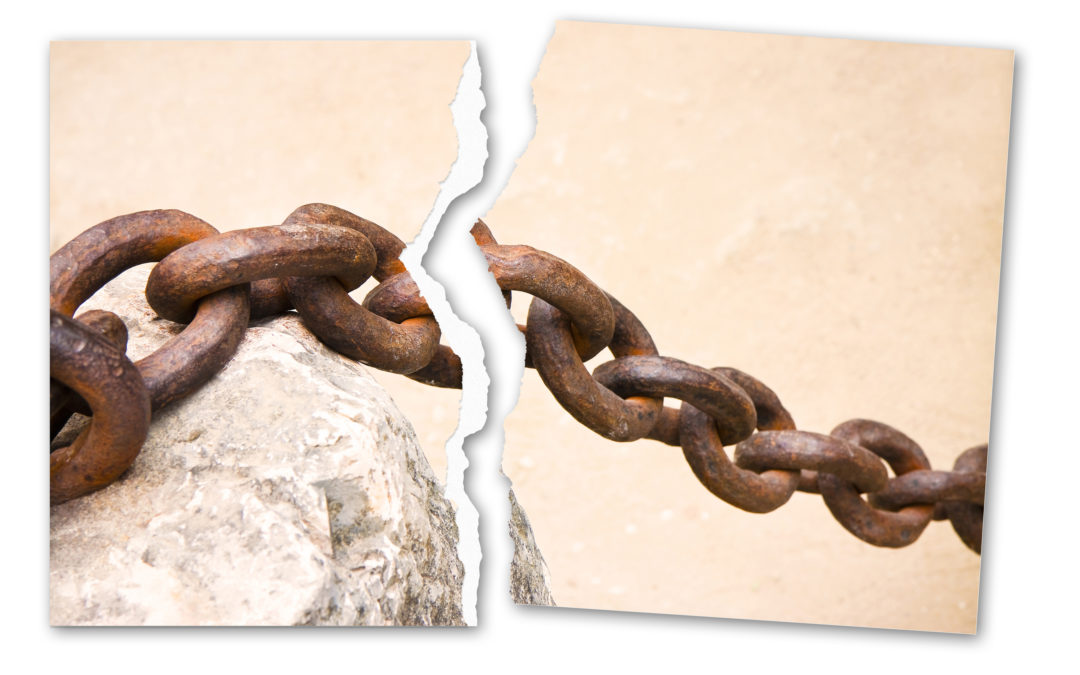
The Punished Life
It has been many years since I went “no contact” with my family. I have not regretted it. That doesn’t mean I have never felt an urge from my love seeker or karma kid to reengage. There is always a slight feeling that maybe, just maybe, the next time, they will do the right thing. But I am grounded enough to know that won’t happen. If I ever walked back into the lion’s den, I would be engulfed in an overwhelming onslaught of abusive patterns almost instantly. The manipulation would be insane. I have come far enough in my recovery to know that. I won’t ever go back.
In this recovery journey, going “no contact” with abusive family is sometimes sold as an end goal. It is seen as something to achieve which will lead to a better life almost instantaneously. But I have learned that it is a starting point. It takes our inner conversation to a new level. The parts start to feel safe enough to share their experiences and emotions because they are no longer afraid that other parts might “tell on them”. And parts are no longer experiencing the constant invalidation and other abusive patterns that squelch their voice. They can be honest without the intense abusive response of the past.
But there’s another impact to our decision to go “no contact”. This decision starts to break down our contracts. Contracts are deals we made with family members when we were growing up. They weren’t real deals because we never had a choice. They are forced contracts which are not contracts at all. But to our inner parts, these contracts are definitive. Most contracts come with threats to someone’s wellbeing. The threats could be against us, another family member or even the abuser themselves. And our abusers may have done horrible things to prove how serious they were. So our inner parts were trapped in these contracts and they don’t see any way out.
When we start making changes and breaking contracts, there is a backlash. It can be very intense. There can be massive waves of guilt. The karma kid can move us into self-punishment where we have to pay for our choices. While this may just sound like nasty self-abuse (and it is), it has a purpose. It is meant to put us back in line before we (or someone else) is hurt. This punishment can show up in so many ways. Here are some examples of what we might see.
Confusion about what we want. When we start to taste freedom, it can feel disorienting. We aren’t used to receiving guidance from within. There was always so much pressure from family to do things a certain way. And to some of our inner parts, this provided a level of security. We always knew what we were and were not allowed to do. But with freedom from family, we can make new choices. The problem is the contracts. We might feel like we want to move in a certain direction, but we get confused about it. Is it our intuition or an inner part trying to trick us? We don’t always know. Not surprisingly, the most authentic directions will come with the most confusion as we work through the mental blocks our family created to stop our authentic expression.
Blocks to our authentic steps. When we work our way through the confusion and have a sense of our direction, we will often find ourselves blocked from moving forward. We can be blocked in highly physical ways. We might get physically ill when we want to take steps in a new direction. We might be inundated with futility as the karma kid tries to stop us in our tracks. We can make a new decision one day and the next day, we can’t get out of bed. But this also shows up in our beliefs. “We cannot. We are not allowed. We are not good enough.” These messages can ring in our head repeatedly stopping us from moving forward.
Rules that don’t make sense. We might find ourselves living by some rules even though we have no idea why. We will make decisions to move forward, but end up following rules that don’t make sense. What do those rules look like? “I can move forward with this project, but I have to stay in this town. I can work on this new goal, but I have to work on it alone. I have to work harder than everyone else. I am not allowed to rest. I can have one thing I want, but not everything. I am only allowed to be as successful as my family.” But these rules aren’t conscious. We don’t hear them out loud unless we listen closely. We can sense that something isn’t quite right though. Some things seem out of our reach. And that is where we need to start our search for what is holding us back.
Breaking contracts is hard work. Taking action to remove family contact can be an important step forward. But the next steps will require some challenging inner work. We need to find those contracts and remove them from the psyche to stop the self-punishment from standing in the way of our most authentic life. We will struggle with inner messages that we can’t have what we want. But if we pay attention to how we are resisting what we want, we can excavate the remnants of our abuse. We can release the resistance to life. It is possible to stop the self-punishment and have the life we want.
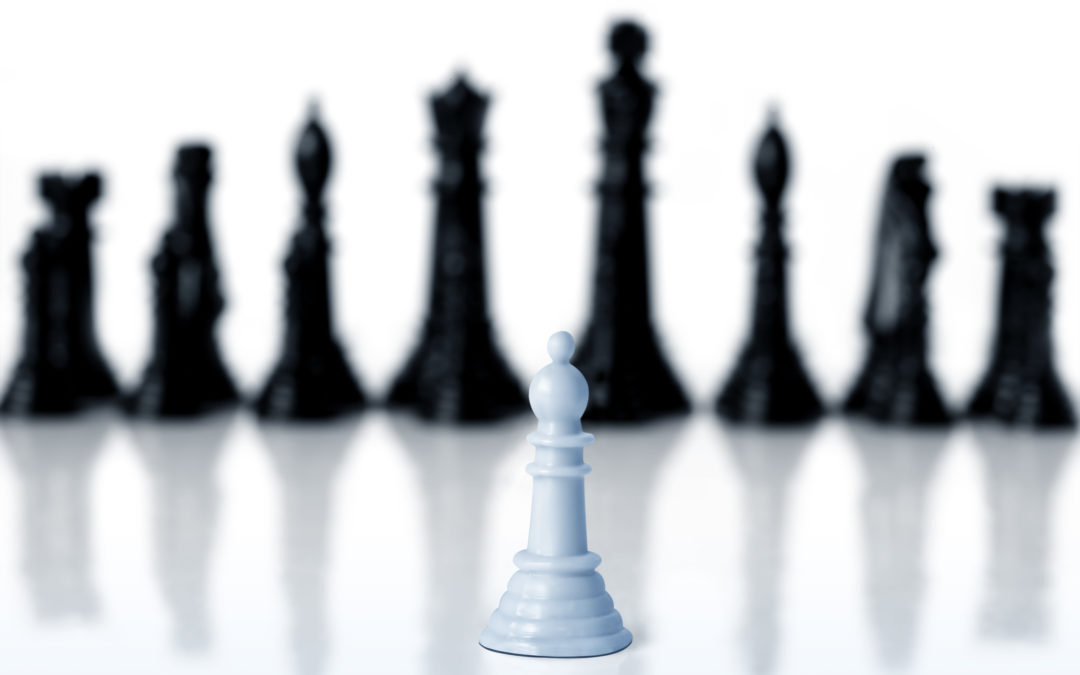
Taking Back our Credibility
When we are born into an abusive family, we are born into a war we didn’t know we were fighting. We also don’t know how to fight it. We were never given the weapons to fight this war. But the attacks on us start the minute we are born. I am not suggesting we are physically, emotionally or sexually abused the moment we are born (although some are). But the manipulation begins. That manipulation is often the most insidious part of the abuse we are enduring. It is meant to teach us and others that we are not good enough. And while the tactics can be extremely diverse, the goal is to squash any chance to be a credible voice against what we are enduring.
But the problem is its stealthy nature. We don’t know what is happening to us because they are building our mind as we grow. They are creating the pathways and they can make them what they want. They are setting up our brains to work exactly how they need them to work. Once this is accomplished, we will respond to their abuse in the way they expect. And this will elicit the response from others based on our actions in front of them. This is the plan. And we don’t stand a chance against it. The battles of childhood are not going to work in our favor. This is why we have to work toward changing these pathways once we reach adulthood. But it’s a minefield of old programming. The only way to undo what they did is building awareness of what they created. So here are some examples of how abusive families will attack our credibility from the inside out.
Baiting. As the abuse in our family escalates, the anger within will build. This is natural and normal when we are experiencing abuse of any kind. But our family will tell us that our response is not okay. They will tell us our emotional expression is a sign that we are crazy or insane. They will tell us it means something is wrong with us. To be sure that our programming is complete, they will do what it takes to bait us. They will find ways to trigger the anger they have built in us. And when others are around, they will use those triggers to create an emotional response while they play the victim. And the “others” will be specially chosen. They will be people who are most likely to believe the parents. They will confirm the difficult situation of the poor parents and put all the responsibility on the child. “The poor parents have a crazy child. It’s such a shame.” A battle is lost.
Provoking Battles with Others. In an abusive family, relationships with others outside the immediate circle are a cause for concern. Others are seen as a threat and most relationships will be thwarted in one way or another. But some families like to “kill two birds with one stone”. They will work to destroy the relationship by making us look like the crazy person. They will search for ways to create battles in the relationship by feigning interest long enough to gather information. And they will work hard to drive a wedge by creating drama that leaves the others questioning our sanity. This could be baiting. This could be lies and hearsay used against one side or the other. But it is often done under the surface in a way that makes it hard to track it back to the abusers. And another battle is lost.
Blaming. Blaming almost always starts on a one-on-one basis and builds from there. The adult’s abusive actions are almost always blamed on the victim. And it begins the process of self-blame for almost anything. Over time, this can become a highly public process, creating a scapegoat for any of the family’s hardships. “We would have never had to do this if it hadn’t been for our difficult child.” “Our lives are so much harder because of the way this child behaves.” “Our angry child creates so many problems for us.” The reputation of the child continues to plummet with each scapegoating story. And another battle is lost.
These might seem incredibly sneaky. You might be thinking these are not possible for the average person. Abusers would have to be highly intelligent to pull off these tactics. But it’s not the truth. These tactics don’t live in the conscious mind. Abusers are not sitting around the dining room table every night coming up with the next scheme (although some might). These tactics are happening from an unconscious place. The inner parts are repeating the exact tactics used against them with different players. This is generational trauma at its core. There is very little cognitive intelligence required. It usually doesn’t happen from that place. But now we can unravel the unconscious web created in our minds. We can find the mines and excavate them. We do not have to live with the effects of these abusive tactics forever. The battles are over. We can win the war.
Come join me in Survivor’s Guide for Life in August as we discuss how to recognize abusive patterns and stop the impact on our adult lives.

Why I’m a Bad Friend
I’ve always had this wish to have that circle of friends. You know that amazing group of friends we see in all the movies and commercials where they eat together, vacation together and are unconditionally supportive of each other even when they make mistakes. I’ll be honest. I am not entirely sure this kind of friend circle is entirely possible based on the current evolution of humanity, but maybe that’s my trauma talking. I can say that it doesn’t seem to be possible for me. I am a bad friend. I don’t know how to navigate a relationship unless the rules are very clearly defined. And let’s be real, they never are.
Relationships bring up the most struggle from my inner parts because relationships are where my trauma happened. So up until now, I have had to keep my desire for that circle of friends as a pipe dream. I have had to give myself distance from people so I can watch my reaction to them and help my parts heal. When my relational patterns have inevitably shown up, I have had to process in isolation so I can keep building my relational skills. Through all my processing, I have learned some of the reasons I am a bad friend. I am not saying that to be hard on myself. It’s not my fault I was plagued with so many relational challenges. But I have learned that honesty about my struggles is my best way to healing.
My controller is controlling. This is not surprising. It doesn’t mean I am always controlling the other person. But it means I am always trying to control the situation. Everyone and everything has to follow rules. If someone wants to spend time with me, I have to schedule them in. I have to figure out how to have time for a person while doing all my other tasks. And I’ll be honest, my controller doesn’t prioritize friendship high on the list of things to get done. Having friends is not life or death. There is no goal to be reached. So they see it as something to do when everything else is done. And everything else is never done. My controller is also trying to figure out where everyone stands. What is my role in this friendship? What is expected of me? Who has the power position here? In friendship, the rules aren’t clear. And if it gets too unclear, the controller wants to move on.
My isolator is distancing. The isolator doesn’t trust. That’s understandable. But it can make vulnerability very challenging. Why should I open up to someone who is just going to leave? Why would I make time for someone who just wants something from me? The isolator sees everyone as a potential threat to my ability to stay authentic and true to self. So distance is best. The more suggestions another person has, the more the isolator will distance. They see “arm’s length” as the best option for relating to others, and they will do whatever it takes to keep people there.
My love seeker is blocked. I do have a part(s) who wants connection. As a matter of a fact, they are screaming for it. They are desperate for it. But they’re blocked. And they aren’t just blocked by one part. They are blocked by almost all the other parts for different reasons. The vulnerability and closeness the love seeker seeks is not acceptable. And the patterns they tend to recreate are not safe. So they get blocked. But when they do get out, they come on strong for a short time, creating confusion for someone who may be used to (and comfortable with) my standoffish tendencies.
My inner rebel is defying. As a freedom fighter, my inner rebel wants to make sure there are no attempts to get in the way of my freedom. If someone is interested in telling me what I should do next, you can bet I won’t be doing it, even if it is a great idea. Don’t get me wrong, it is good to disagree and be open about it. Conflict is fine in friendships. But my inner rebel won’t be so obvious. I might even say that’s a great idea. But when I am on my own, I will never be able to make it happen. There will be a force of monumental proportions stopping me from my attempts to take steps in that direction, even when I am completely on board with it. And that can leave others completely baffled.
My karma kid is preparing. My karma kid knows what the family contracts say. If I am breaking them (and I am), the people close to me will suffer. They will be harmed by my family. So I either have to have secret relationships with others (which is impossible) or I have to stay on my own to avoid anyone else being hurt by my horrible family members. My karma kid knows better than to drag any innocent people into the mess that is my life. I must sacrifice my desire for connection to keep everyone else out of trouble. And unfortunately, the more I like another person, the more this applies. My family was NEVER okay with anyone or anything I really liked.
I will keep working with my inner parts and their survival skills. I will keep trying my best to unravel the relational struggles that seem inherent in those of us with complex trauma. I will slow things down so I can see what is happening with my inner parts. And hopefully, I will build an inner understanding of what friendship is supposed to be. In the process, I will do my best not to be so hard on myself for struggling to figure this out. It isn’t my fault I am a bad friend. But I’ll work to fix it because I deserve my circle of friends.
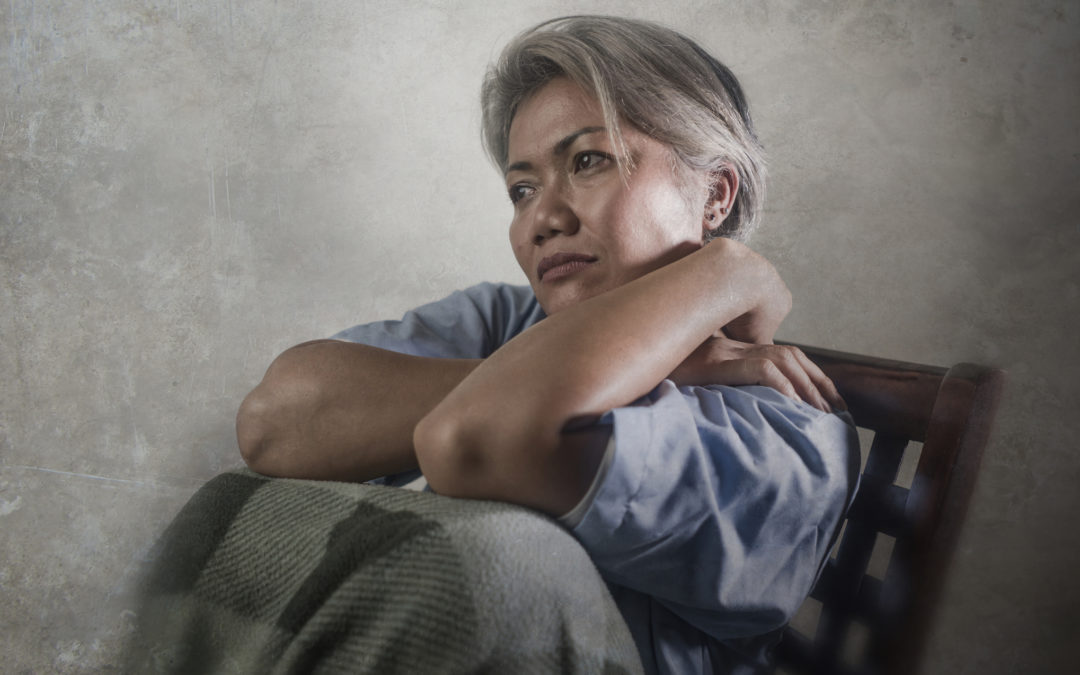
When This Work Matters Most
The futility has been sneaking in over this past week. It has been building just outside of my conscious awareness. This is what futility does. It doesn’t want to be noticed. It reminds me of the frog in the water as it heats up. It doesn’t know what’s happening until it’s too late. Maybe that’s depressing, but isn’t that the point? That’s exactly what futility is. It is depression. It is hopelessness. It tells you that nothing is okay. And while it is a flashback, our parts have some incredible skills. They can take the most intense futility on your best day and give you a convincing story about why it is about this moment. They do it so well.
The futility makes it hard to move. It feels like I am walking through 4 feet of mucky, swampy yuck just to do the most basic tasks. But I don’t need to tell you what it feels like. You know exactly what it feels like. You know what it feels like to be paralyzed. And that’s why we have to move. We have to move just enough to hear its message. We have to write down the real story about what it felt like to be trapped in a world of nasty, abusive people. We have to hear out the parts who think they are obligated to uphold the “contracts” with abusive people from childhood. But to start, it helps to hear what it sounds like now. What is the flashback being translated to right now? Here are some examples of what I am hearing.
“I’m never going to get better.” Just when I start feeling better, something happens to remind me that I’m not. There’s a dysfunctional behavior or an intense emotion I can’t stop from impacting my life. The very cyclical nature of recovery makes this inevitable. You feel better and then you feel worse. And every time you start to feel worse, the futility will come with it to tell you it will never get better. What a perfectly orchestrated train wreck! Thank you, universe. You are so clever. Now I have to take twice as long to work through how I feel because there is a layer of “why bother” on top of it. Sometimes I have conversations with the universe when I feel this way. I say they asked too much of me. I say this just isn’t possible. The obstacle course is not possible for a human being. And I’m not going to play the game anymore. Giving up seems like a much better idea. But what if the goal is not some perfectly healed person? What if there is no finish line to emotional development? I don’t know.
“It’s never going to get easier.” Living life as an adult is really hard. But living life as an adult with depression feels impossible. I am trying to figure out how to get the basics done. That long list of tasks like car inspections and census responses just makes it all seem totally pointless. And then add in a few massive crises in the world around me. Why am I trying? My controller has this completely distorted view that one day, all the things will be done. So when that never happens, they bitch and moan about how my futility is the cause of it. If I just pretended my past never happened, I would be able to get all the things done. But guess what! I tried that! I tried that for years and the stuff didn’t get done. Why? The stuff is never EVER going to get done. That’s the point. But the futility loves to tell me that means there is no point. I should just give up because the stuff will never get done. But what if the stuff is never supposed to get done? What if that isn’t the point of life in the first place? I don’t know.
“There’s no place for me here.” When it feels like I am an imposter, it can be so difficult to live in the world without wanting to give up. It is so convincing too. It helps that I talk to people all day long who are fighting this same fight. But some days, it can feel like the zombie apocalypse where 0.0005% of the population is awake. And maybe it’s okay to have surface friendships. It doesn’t feel as bad as it used to. But I have parts who are screaming for authentic conversation, real deep discussions about the human experience. And so many people want to talk about their new car and the floors they just put in their living room. I don’t care. I know that’s mean. But I don’t. And most people run from what I am talking about. And I get why they do it. Emotional healing is the hardest thing on the planet. I hate it. It’s messy and it’s unfair and it sucks. But I can’t live in zombie land. And my futility says to give up on this place. But what if there are enough of us waking up? What if we can tip the scales if we don’t give up? I don’t know.
When we hear these stories start to repeat in our minds, it is time to wonder. We won’t always have the strength to wonder. But if we can let ourselves consider where these messages might be coming from and what might be underneath them, we can hear the real story. It’s not easy. Some days, it feels impossible. But it must be possible. It has to be.
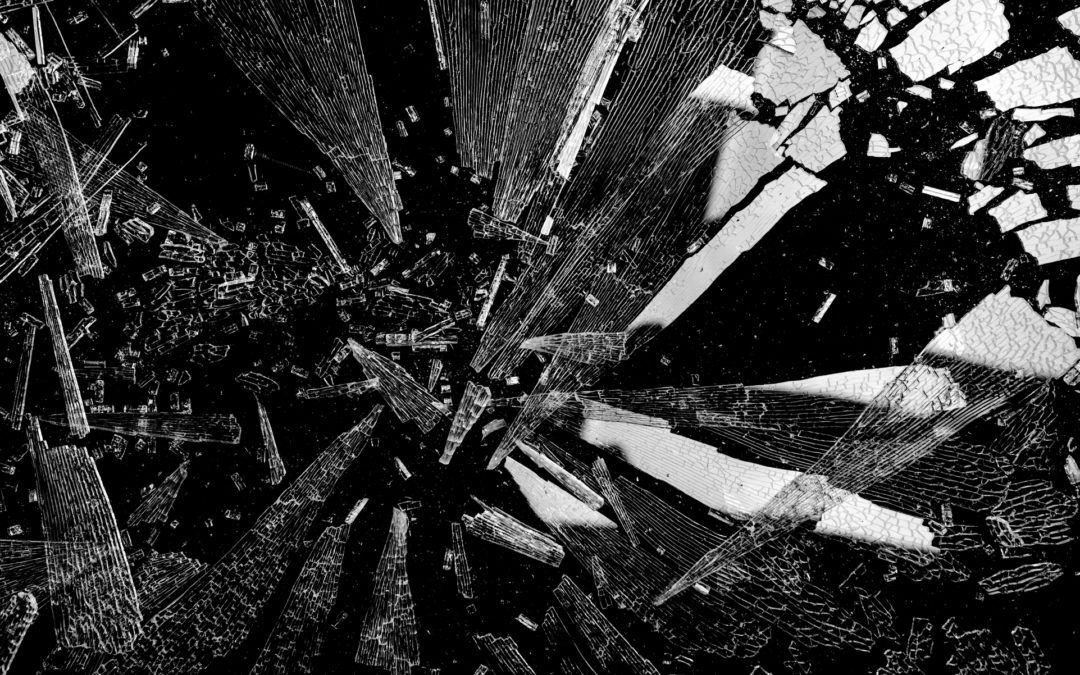
The Fragments of a Dysfunctional Family
I decided to go no-contact with my family many years ago. It wasn’t a flippant decision. It wasn’t to punish my parents. It wasn’t any of those stereotypes about no-contact decisions. Those come from people who are either jealous of our freedom or have done the kinds of things that warrant no-contact decisions from their kids. I went no-contact because it was the safest thing I could do for my own children. I wanted them to have a chance at a normal life without abuse, trafficking and manipulation from the people who are supposed to love them. I look back on that decision now and see it as one of the best things I did.
But gong no-contact was not the end of the journey. In many cases, it is the beginning. It allows our system of inner parts the safety needed to start unraveling and unpacking the trauma we have carried around for years. And believe me, my system took the opportunity. My inner parts were tired of carrying around years of pain. They were tired of re-creating the patterns from childhood in every relationship. They were tired of not knowing what bad thing would happen next or whether or not I would remember it. They pushed through many defenses to be heard. I’m glad they did.
I have learned over these years that a traumatic childhood gives us a set of blinders. Many times, I don’t know what decisions I am making in the unconscious until I start to recover the memories that are driving those decisions. Each time I uncover a new pattern, it can feel like I have wasted a lifetime in the dysfunction it created. And after so many years of inner work, it feels frustrating to know that I am still getting these horrific people out of my unconscious. I hate that I am carrying them around still. I hate it so much that I go into denial about it sometimes. I don’t want to see it anymore. But to be fair, I have unraveled a ton of trauma so far. My life is much better. And when I am grounded, I know that.
This week, I thought I would share with you the ways my family stayed with me long after I sent them packing. I share these with you because you don’t deserve to carry them around either. And if this brings awareness to those parts of you, that makes it all worth it. So here’s a few bread crumbs to help you search your own unconscious. Here are some beliefs coming from my traumatic experiences with a dysfunctional family.
I’m not sure people are safe. I already get that there are plenty of people who aren’t actually safe. I am not talking about them here. We never want to think they are safe. But I struggle to see safe people as safe sometimes. And that is so frustrating. It is fueled by the years of meddling by my mother. There was no relationship that was untouched by her. So now, when someone says a word or phrase that sounds like my mother or indicates they may have been in a town where my mother has been, my isolator rises up with big questions. “How do I know my mother didn’t send them along?” “How can I be sure these people are safe?” She is still messing with my relationships long after I kicked her to the curb, at least for now.
I’m not convinced this is possible. That might sound a bit ridiculous coming from someone who is so invested in this process, I teach it to others. When I am grounded, I honestly and wholeheartedly believe it is possible to fully heal from our childhood trauma. I don’t just mean to “live with it”. I mean fully heal. But when I am not grounded, the futility seeps in and says there is no way to unravel the web they wove. It is too deep and too entangled in who I was supposed to be. It feels like surgically removing 150,000 pieces of shrapnel from my poor, tired body. And no matter how good my life gets, there is this nagging bit of doubt and futility that stick around, at least for now.
I regret the time spent in my trauma patterns. I don’t wallow in this place of regret. But there is a grieving process that comes with change. The grief is a requirement to ground into the change. That grief says, “I could have done this sooner.” And it doesn’t feel good. I hate that my early adult years were spent in a trance continuing to play out horrible patterns with my family and partners. I waited for them to do the right thing, but they weren’t capable of it. I want the years they stole from me and I am not going to get them. But I still need to give myself the compassion to express it. And I need to put the blame where it belongs. I won’t get anywhere with “get over it”. That has never been a healing phrase. But “what could’ve been” will show up in my mind on occasion, at least for now.
I do believe it is possible to unravel and untangle the web of complex trauma our families wove as they attempted to trap us in the same miserable life. I truly believe it is possible to feel all the feelings and remember all the memories which are driving our lives. In many cases, this journey starts with no-contact. But it doesn’t end there. When you hear the unconscious beckon you into “the old ways”, use your awareness to let it express. But make another choice. Your life doesn’t have to be dictated by the web. It can and does change with this work. Keep at it. The more you see what was left behind, the less it will impact your life.

